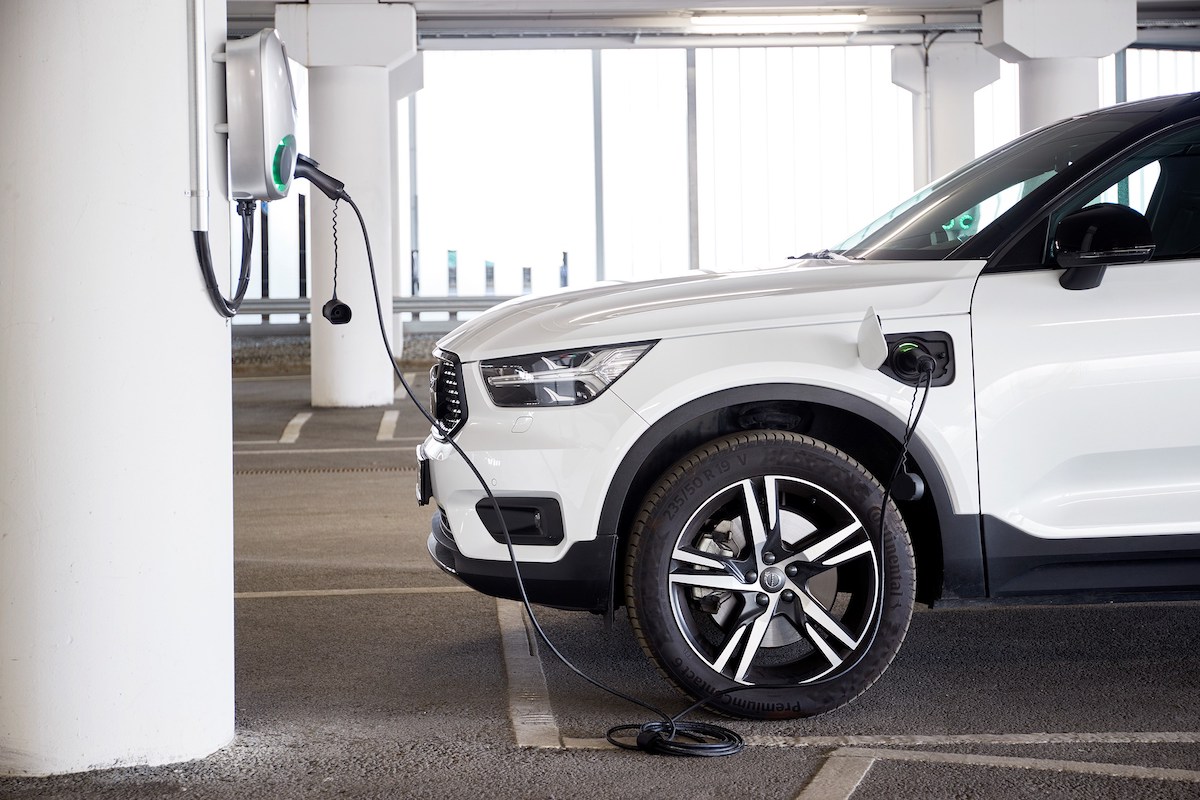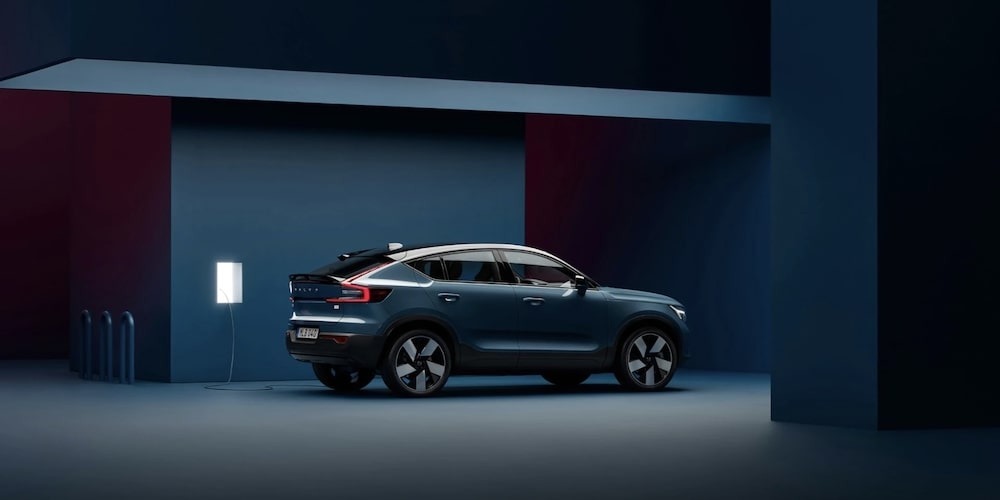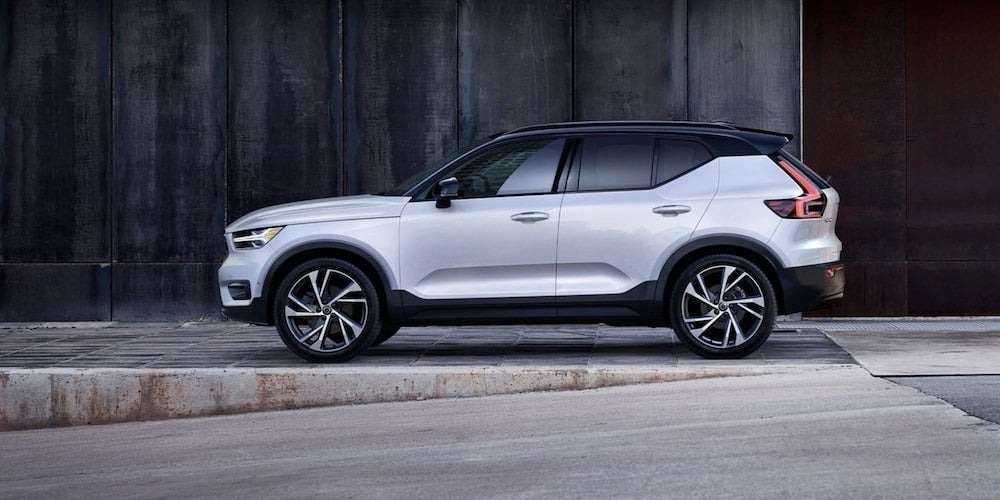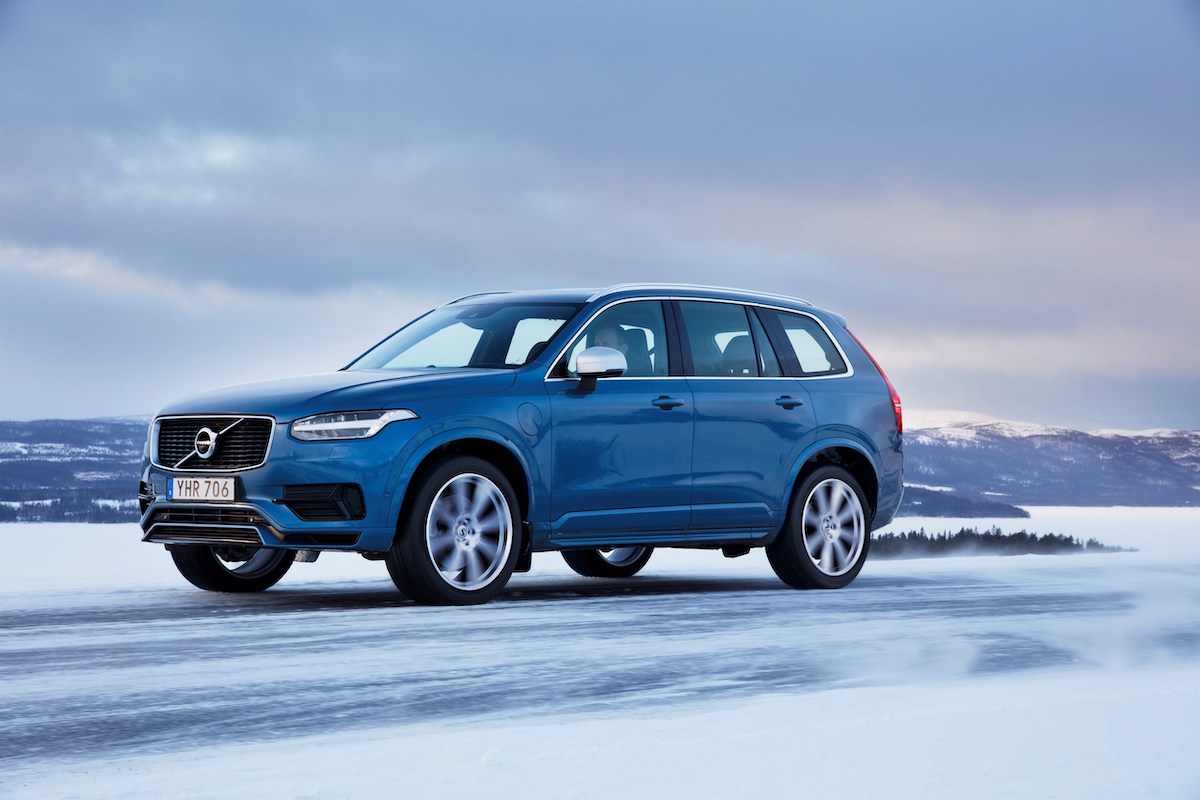Updated 11 months ago
Volvo Announces All Cars Bill be Fully Electric by 2030
Written by
Ana Almerini

Find out what solar panels cost in your area
The electric automobile is quickly becoming the next big must-have car. Volvo is capitalizing on this electric craze by announcing that their entire car lineup will be fully electric by 2030. Like many other vehicle manufacturers, Volvo anticipates a future where fossil fuel cars will be obsolete and has decided to update their lineup to better serve the needs of future generations.
Volvo, the Swedish carmaker owned by the Chinese firm Geely, has its eyes set on the future. In addition to going fully electric, they plan to sell their vehicles exclusively online. The goal of strictly online sales is to be more transparent about price and to offer a more simple selection of cars while providing a convenient shopping experience.
Electric powertrain cars are becoming cheaper, their mileage range more reliable, and they will help countries reach their goals of reducing carbon emissions. Volvo's largest market is Europe, and European countries have been setting ambitious climate goals. Utilizing electric vehicles will help them meet goals to reduce greenhouse gas emissions.
Realizing the market forces and the changes to come, Volvo’s CEO Hakan Samuelsson decided it was best to evolve with the times and cater to the long-term green future by providing fully electric cars. Henrik Green, Volvos chief technology officer said in a statement, "There is no long-term future for cars with an internal combustion engine."
With that in mind, Volvo announced their newest electric car: the electric Volvo C40 Recharge. Let’s take a look at the current electric cars Volvo offers and what sets them apart from their competition.
Key takeaways
-
Volvo announced that every car in their lineup will be fully electric by 2030 and sold exclusively online.
-
The brand new, all-electric Volvo C40 Recharge was also unveiled and it can be preordered starting now!
-
Volvo electric cars are a luxury option but can be more affordable when combined with federal incentives.
What electric cars does Volvo offer?
Currently, Volvo offers five plug-in hybrid electric cars and only one pure electric car available for purchase. But, they have just introduced a second fully electric car that is available for pre-order!
All of the cars offer the impressive features that you would expect from a luxury car at a reasonable price. We can expect more car options to be announced in the coming years but there's plenty to be excited about now.
The featured Volvo electric models are detailed below.
The newest addition is the Volvo C40 Recharge model

Image source: Volvo
Battery: 75-kWh lithium-ion battery
Range: Up to 210 miles
As a follow-up to the announcement last year of the XC40 Recharge, the C40 Recharge was added to help usher in their all-electric fleet. The C40 Recharge has not yet been EPA rated so these numbers are subject to change, but you can expect a mileage range of more than 200 miles per charge and the ability to go from 0-60 in 4.7 seconds.
Other unique features that set this apart from the XC40 are the built-in Google assistant and vegan leather seats. Although the cost is not yet available, the C40 can be pre-ordered now and if ordered, you will be contacted when it is ready to be custom-built.
Volvo XC40 Recharge

Image source: Volvo
Battery: 75-kWh lithium-ion battery
Range: Up to 208 miles
Debuting in 2020, the XC40 is Volvo's first fully electric vehicle. It has the ability to drive up to 208 miles per charge and can go from 0-60 in 4.7 seconds with a horsepower of 402.
Starting at $53,990, the XC40 is a well-priced, high-quality, all-electric SUV. Modeled after its gas-powered XC40 counterpart, the XC40 Recharge offers a smoother grille for a sleeker look.
All of Volvo's fully electric cars are compatible with ChargePoint charging stations, and you can purchase an additional home charger for a quick charging option.
Volvo XC90 Recharge

Image source: Volvo
Battery: 11.6-kWh lithium-ion battery
Range: Up to 18 miles purely electric and 55 miles per gallon with gas
The Volvo XC90 Recharge is a mild hybrid vehicle that utilizes an electric motor to get 18 miles per electric charge and 55 miles per gallon. The Inscription model starts at $63,450 while the slightly more feature-filled R-Design starts at $69,845.
If that price range is slightly too high for you, any of the Volvo car options can be leased or you can even use a subscription payment model.
Instead of buying the Hybrid model, it might be worth it to purchase the all-electric XC40 or wait for the C40 model, especially if going fully-electric is your goal. By 2030, Volvo is also planning to phase out its hybrid car models. As gas-powered cars continue to become less and less popular, they'll soon follow suit.
With all-electric and hybrid Volvo cars, you can expect a battery warranty for 8 years or 100,000 miles, whichever event comes first. You can also take advantage of federal tax credits to reduce the overall cost of the car.
How does Volvo compare to competitors?
Recently, General Motors announced their plan to go fully electric, paving the way for the American market to be more open to electric vehicles. Some of Volvo's closer competition, like Jaguar, are setting their own ambitions to go fully electric.
Jaguar recently announced that their lineup will be all-electric in 2025 and this announcement was part of the inspiration for Volvo to go all-electric. Interestingly, other luxury automakers that compete towards a similar market of customers, such as BMW or Audi, have not yet released their own fully-electric goals.
Even if not every car manufacturer has decided to make their full lineup all-electric, most manufacturers have a fully electric car option ranging from an economically priced Ford to a more luxurious Volkswagen.
In terms of pricing, the XC40 Recharge is slightly more affordable than the Jaguar I-Pace, which starts at $69,850 but the I-Pace does have a slightly higher mileage range of 234 miles per charge. Another all-electric option is the BMW i3, starting at $44,450, although this is a less sleek-looking luxury option.
What the Volvo announcement means for the future of electric cars
It seems like every month another car company is announcing their plans to ditch their internal combustion engine cars and build an electric-only lineup. Transportation is the largest emitter of greenhouse gasses within the United States, with passenger cars leading the list.
The electrification of cars is gaining momentum, thanks in part to Tesla model cars starting the trend to showcase electric cars as luxury. Additionally, the Federal government is planning to switch every vehicle, such as mail trucks, to electric.
Electric cars will soon become an expected addition on the road. But to be as environmentally friendly as possible, the way you charge your electric car matters.
If your home uses solar panels, you can charge your car with 100% clean energy. This way, your day-to-day will be emissions-free. Even your wallet will thank you, as you won't have to spend on gas and electricity to power your home.
Check out how much you can save by installing solar panels to power your car and home. The future of cars is electric, and Volvo is paving the way for a greener way to travel. Keep your eyes on the road for Volvo's upcoming electric cars.
Ana is the Marketing & Communications Manager at SolarReviews, working within the solar industry since 2020. With a Master's in Climate and Society and professional experience in marketing, she helps communicate the value of solar to homeowners and build awareness of the SolarReviews brand. On weekends you can find her at the Jersey shore, reading a book from the ever-increasing stack on her side table, or eating food someone else cooked....
Learn more about Ana Almerini